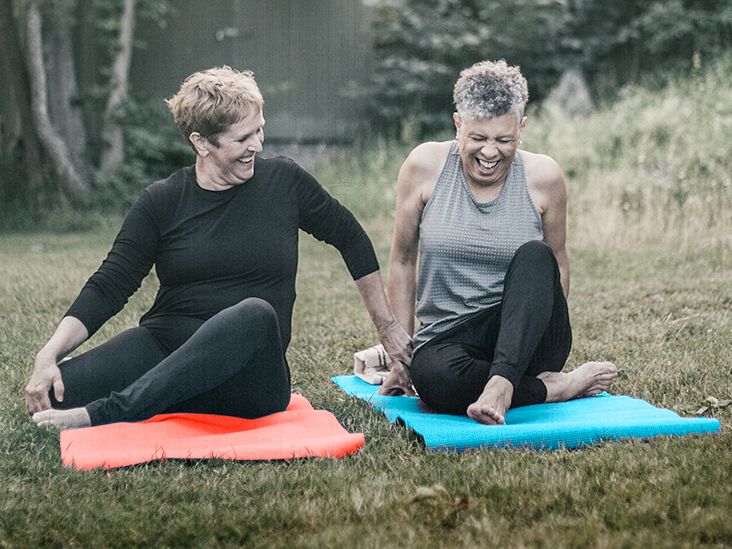Rise by Six: Your Daily Dose of Inspiration
Explore insights and stories that elevate your day.
Yoga for the Rest of Us: Flexibility Not Required
Discover how to embrace yoga for everyone—no flexibility needed! Join us for tips, inspiration, and a healthier, happier you.
What is Accessible Yoga and How Can It Benefit Everyone?
Accessible Yoga refers to a practice of yoga that is inclusive and adaptable to meet the needs of individuals with diverse abilities and backgrounds. It emphasizes the importance of providing modifications and alternative poses to ensure that everyone, regardless of physical limitations, can experience the benefits of yoga. This approach fosters a sense of community and belonging, allowing participants to feel safe and supported while exploring their practice. By promoting inclusivity, accessible yoga not only enhances physical wellness but also nurtures emotional and mental well-being for all.
The benefits of accessible yoga extend far beyond the physical realm. Participants often report improved flexibility, strength, and balance, as well as reduced stress and anxiety levels. Moreover, this inclusive practice can help bridge gaps between diverse populations, creating stronger social connections and a greater sense of unity. By embracing accessible yoga, individuals can cultivate awareness and appreciation for their own bodies, enhance their personal growth, and promote a more compassionate world for everyone.

Gentle Yoga Practices for Every Body: No Experience Necessary
Gentle yoga is a welcoming practice designed to accommodate individuals of all fitness levels and body types. With a focus on gentle movements and mindful breathing, yoga promotes not only physical flexibility but also mental relaxation. Whether you're a complete beginner or someone looking to reconnect with your body, gentle yoga offers a variety of postures that are easy to follow and modify for your needs. No experience is necessary; simply find a comfortable mat, wear loose clothing, and prepare to explore the tranquility that yoga can bring.
Incorporating gentle yoga into your routine can provide numerous benefits, including enhanced flexibility, reduced stress, and improved overall wellness. Here are a few simple poses to consider:
- Child's Pose: A restorative position that encourages deep breathing.
- Cat-Cow Stretch: A gentle flow between two positions that warms up the spine.
- Seated Forward Bend: This pose stretches the back and legs while promoting relaxation.
Each of these simple practices can be adjusted to fit your comfort level, ensuring that everyone, regardless of their background, can enjoy the peaceful benefits of gentle yoga.
Common Misconceptions About Yoga: Flexibility is Not a Requirement
One of the most pervasive misconceptions about yoga is the belief that you must be flexible to practice it effectively. This notion often deters many individuals from even attempting yoga, as they feel they are not physically capable of achieving the poses. However, yoga is fundamentally about connecting the mind, body, and spirit, not about achieving a perfect split or touching your toes. In reality, practitioners of all levels, shapes, and sizes can find modifications and alternative poses that cater to their individual abilities, making yoga an accessible practice for everyone.
Additionally, flexibility is not an endpoint but rather a journey that evolves with consistent practice. It's common for beginners to experience tightness when starting yoga, but this is perfectly normal. Through patience and dedication, individuals will often find their flexibility improves over time. Therefore, instead of focusing on flexibility as a requirement, it's essential to approach yoga with an open mind, embracing the process of growth. Remember, the true essence of yoga lies in self-acceptance and awareness, rather than conforming to physical expectations.